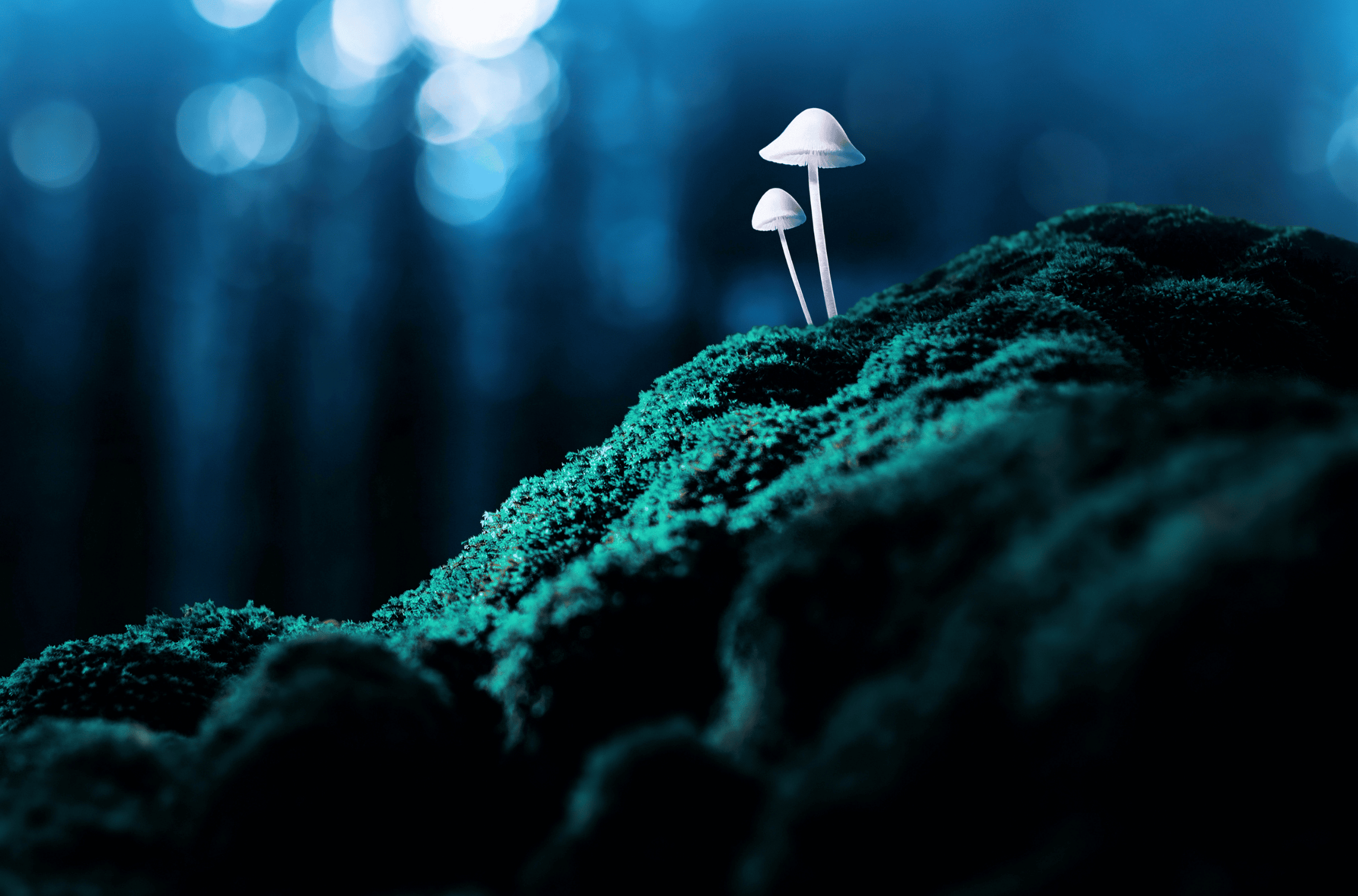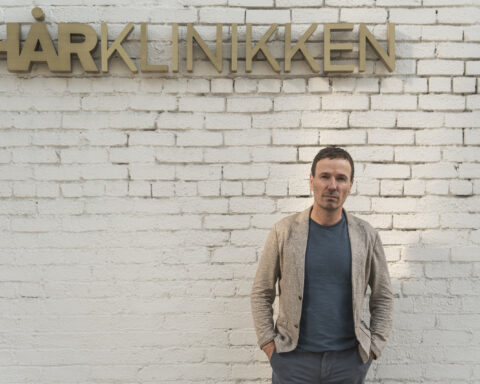There was another significant change that went somewhat under the radar amid the election chaos last week.
Voters in Oregon approved a bill to legalize psilocybin, the active ingredient in magic mushrooms, while those in Washington DC also voted to effectively decriminalize organic psychedelic drugs.
Supporters of these measures are calling it the “psychedelic renaissance” and believe it will open the door for further exploration of these substances to treat mental health conditions including trauma and addiction.
And if the trend is followed across the country, some believe it could even see the tide turning more broadly in America’s ‘war on drugs’, which has been predominantly based around criminal prohibition until recent years.
Dennis McKenna has been studying plant medicine since the 1960s. He was the first man to conduct a biomedical study on the effects of ayahuasca and has become one of the world’s leading researchers, lecturers and authors in the field of ethnopharmacology, studying the use of plant medicine by indigenous groups.
And here he talks about what the law changes could mean for psychedelics’ future use in medicine in The West, and the impact on the communities where these practices originate.

Dennis McKenna
Words by Dennis McKenna
For those of us that recognize the potential for psychedelics as therapeutic medicines, I think these recent developments in the decriminalization movement are very encouraging. But while it’s a step in the right direction, we don’t know yet how significant they are.
I personally don’t think that any plant should be criminalized. The plants and the fungi involved in this are not criminal. There are plenty of opportunities to misuse these substances, and many people do. However, I think the solution is essentially education, teaching people to use them in an informed and responsible way that maximizes the safety of people participating. That’s my personal view.
But I understand that psychedelics are a very different critter than cannabis. They have to be used in very specialized ways, under special circumstances, and they can’t be treated simply as a recreational medicine. They have to be used in highly structured settings.
I think there’s a dichotomy evolving now, because on the one hand, you’ve got a great deal of effort, time and money now being put into developing things like psilocybin as clinical medicines. The investment community has taken a look at the science that these things can be useful for a whole spectrum of mental disorders that are not easily treatable by conventional methods. There’s good science that supports that and, of course, investors and capitalists are always looking for opportunities for good places to put their money. And now, very much similar to cannabis a few years ago, they see the psychedelic sector as an opportunity for investment.
So people are developing this biomedical model, where these things are used in the clinical setting and they develop clinical protocols. And therefore, they have to be highly structured in order to get the right approval from the FDA and other regulatory bodies. And that’s fine. But personally, I would not like to see a situation where I could go to a clinic and pay $30,000 to get a psilocybin therapy session, that my insurance may or may not cover, but I’m prohibited from walking into the woods and picking mushrooms.
And when I talk to people in the science field, and also at these startup companies, I say it’s fine for them to develop these products and to capitalize it and make money — well, I guess it’s OK — but there needs to be a mechanism for reciprocity. These natural medicines, and the knowledge of how to use them, have been under the stewardship of indigenous people and shamans for literally thousands of years. But the plants, cultures and habitats that are inhabited by these indigenous people are under a lot of pressure. So I think the corporate community and the scientific community has an obligation to provide some reciprocity here, whether that comes in terms of direct financial compensation, and also some sort of formulation of the laws so that they can practice without fear of prosecution.
Ayahuasca is a good example, because there’s been considerable growth in tourism with people going to South America to have that experience. In my experience, most of them are not thrill-seekers but serious people, and many of them have some sort of mental issue that they hope it will help with. But I’m now wondering whether people going there – and I’m guilty myself as I have brought people to South America many times – could be the wrong thing to do. Because, of course, it brings economic benefits to the local communities, but it’s also disruptive in terms of their traditional practices and so on. Injecting a lot of money into these kinds of situations always changes the dynamic. And another of the issues of the ayahuasca tourism trend is some of these practitioners are not ethical, so there can be abuse.
So what encourages me about the decriminalization movement is the possibility that these things can become approved for use in North American and Europe, they are regulated, and it creates an opportunity to open treatment centers where people could go to have access to these medicines under controlled conditions with practitioners, whether they are therapists or shamans or some combination of that, and have these experiences. So we bring the medicines to the people instead of the people to the medicines.
And importantly, I would like to see these companies work with the indigenous communities to produce these products in a way that’s sustainable. They could benefit from investment in the infrastructure so those medicines can be exported to North America in some kind of regulatory framework, and they can supply the clinics that way. There are already centers that are operating underground, off the radar. There are quite a few of them, more than you might expect. And by changing the regulatory framework a little bit, these centers could come out of the shadows, they could operate in the open, and they could be regulated to ensure that the medicines are pure and that the practitioners have training and certain ethics.
And if psychedelics are effective, they’re effective in one or a few sessions. That has implications for the economic side of this. But the revenue is in the services you create, around the administration of the medicine in preparation, then the support and the aftercare. That’s where you can make the money.
Psychedelics can be used to treat major depression, trauma, PTSD and addictions. They can help people to step out of their reference frame temporarily. People can look at their existential problem from a slightly, or sometimes profoundly, different perspective, and that can help them get at the root of the problem.
In order to do this, the psychedelics can temporarily disable what’s called the default mode network. This is kind of a buzz term in neuroscience, and the default mode network is this sort of behavioral bubble that we construct around ourselves and we live inside. It’s a combination of habits, perceptions and associations that enables us to make sense of the world and navigate through the world. It’s a model that we construct. We call it consensus reality, sometimes I call it the reality hallucination. And psychedelics can temporarily disrupt that.
But we often say that the real work starts after the trip. Because it’s all about integration. You have the experience, but then you have to integrate it, you have to deal with what you’ve learned. It’s easy enough to brush it off and say: “Well, that was a really weird and interesting experience.” But if you change nothing afterwards, then it won’t be as effective as a therapy. You see this particularly with respect to addiction disorders and this sort of thing, because addiction is a basically a habitual behavior. You form this relationship with a drug, whatever it is, and it reinforces that behavior because it becomes pleasurable when very little else is, and there are brain circuits that are set up to reinforce this pleasure response.
The psychedelics can disrupt that temporarily and give you a perspective on your relationship with the substance. But if you just go back to your own neighborhood, start hanging out with your friends and make no change, you’re going to slip back into the cycle of addiction. So particularly with respect to addiction disorders, you have to plan ahead for it, you have to think beyond the therapy session to what you are going to do with the information. And if you’re prepared to make the changes, you can get over it. If you’re not prepared to change your life after you’ve had the series of therapeutic sessions, you won’t. You have to be ready to change.











